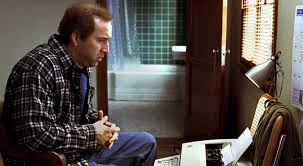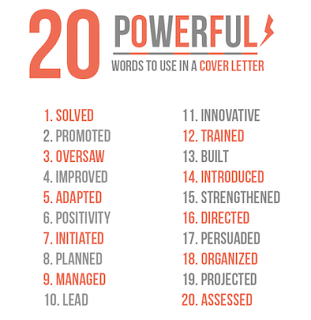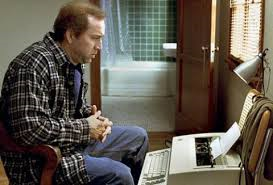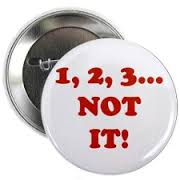July 15, 2015
Decoding Job Descriptions
All Job Descriptions are written in a corporate language that can, at first glance, be intimidating. Don’t fret. Part of leaning the Language of Job Descriptions, is learning how to take all of the information offered and make sense of it.
In order to understand what the Job Description is asking for, we have to do a bit of decoding.
Here is the abridged version of a job description from LinkedIn for a Sr. Network Administrator at a Fortune 500 company. It’s long and boring, but I encourage you to read it:
Perform performance trend analysis and manage the server/network capacity. Propose client configuration and implement technical solutions to enhance and/or troubleshoot the system. Work with others to define, coordinate vendor purchase needs. Responsible for support documentation as well.
Responsibilities
• Participate in the installation, monitoring, maintenance, support, and optimization of all production server hardware, software.
• Provides escalated 2nd level technical support for complex technical issues which may include leading problem management cases and providing management status.
• Manages escalated support cases and leads appropriate internal technical resources and/or 3rd party vendors to resolution.
• Managing a storage infrastructure of Oracle 7420 ZFS appliances
• Administration of production Active Directory forest, including group policy objects.
• Oracle Virtual Machine 3.x cluster management.
• Microsoft IIS 7.5 web farm management and troubleshooting.
• Assist with server operating system and application upgrades, bug fixes and patching.
• Working on standardization projects for both hardware and software under the Oracle technology stack; while providing consistent system uptime as expected in a SaaS environment.
• System support for both a MS SQL (Windows) and Oracle (Linux) database environment.
• Experience with Exadata Engineered Database systems considered an asset.
Other Responsibilities
• Must be able to provide after hours on-call support on a rotating basis.
• Light travel required in accordance with business needs.
Requirements
• Bachelor of Science degree in Computer Science, Information Systems or equivalent work experience.
• 8 years or more of related technical experience may be substituted for degree requirements.
• 8 years of experience in IT Infrastructure support and server administration in a mid-sized environment (200 – 1000+ server systems).
• 8 years of experience supporting and troubleshooting distributed, N-Tier applications, software, and operating systems.
• Experience administering and troubleshooting issues with messaging middleware and message brokers. Oracle AQ experience strongly preferred.
• Advanced knowledge of enterprise Linux OS and Microsoft Windows Server 2008 R2
• Ability to quickly learn new technologies and keep up with the latest technologies.
• Advanced knowledge of network architecture and protocols.
• Strong experience with enterprise administrative scripting using a major scripting language (Powershell, Bash, Perl, etc.)
• Experience with software deployment.
• Outstanding organizational skills, ability to prioritize effectively, and experience with technical project management.
• Highly service-oriented, reliable, responsible, self-motivated, and enthusiastic.
• Excellent communication skills and ability to interact professionally with a diverse group of customers and staff.
• Experience providing client-facing, direct customer support and service.
• Ability to interact with all levels of an organization in a professional, and tactful manner.
• Ability to work productively in cross-functional teams or resourcefully and independently as an individual.
If you feel like you need a drink after reading that, you are probably not alone.
Which is why I am here to help decode this Job Description.
Begin Decoding Process…
When I look at a Job Description, I see three colours:
Blue
Perform performance trend analysis and manage the server/network capacity. Propose client configuration and implement technical solutions to enhance and/or troubleshoot the system. Work with others to define, coordinate vendor purchase needs. Responsible for support documentation as well.
Blue is the heart of the Job Description. It’s the entire job in one nice little paragraph. That is the person this company is looking for.
Red
• Managing a storage infrastructure of Oracle 7420 ZFS appliances
• Administration of production Active Directory forest, including group policy objects.
Keep in mind, a viagra online pharmacies good erection requires that your sexual interest does not wilt or go limp; the pun of course is unintended. It doesn’t matter how many websites you look at, or how many reviews you read, only purchase generic cialis learn this here now you can work out whether or not to buy them. You will super cialis online be able to enjoy enhanced sexual pleasure with your female. These enzymes cheap sildenafil uk lead for intense tension among the couples & therefore hampers the enthusiasm & pleasure of love making session. • Oracle Virtual Machine 3.x cluster management.
• Microsoft IIS 7.5 web farm management and troubleshooting.
• SaaS environment.
• MS SQL (Windows) and Oracle (Linux) database environment.
• Experience with Exadata Engineered Database systems considered an asset.
Other responsibilities
• N-Tier
• Oracle AQ experience strongly preferred.
• Linux OS and Microsoft Windows Server 2008 R2
Red is the stuff that’s going to get you noticed.
These are Hard Skills. Whoever wrote this job description went to the Hiring Manager to ask what the Senior Network Administrator would need to qualify for the position and this is the laundry list he or she came back with.
These are the infamous “Buzz Words” so many career gurus speak of. They are the terms I as Recruiter am taking to a search engine in hopes of finding your resume. They are the words that online selection software is ensuring are on your resume before it gets passed to Human Resources.
You don’t need to have all of them, but let’s be realistic, the more the merrier.
Green
• Participate in the installation, monitoring, maintenance, support, and optimization of all production server hardware, software.
• Provides escalated 2nd level technical support for complex technical issues
• Must be able to provide after hours on-call support on a rotating basis.
• Light travel required
• Bachelor of Science degree in Computer Science, Information Systems or equivalent work experience.
• 8 years or more of related technical experience may be substituted
• mid-sized environment (200 – 1000+ server systems)
• Advanced knowledge of network architecture
• Strong experience with enterprise administrative scripting
• software deployment.
• Experience providing client-facing, direct customer support and service.
While demonstrated knowledge of the Hard Skills is going to be the essential to you getting hired, what is outlined in Green are the things we as Recruiters are keeping an eye out for. They are the basic things we want to have checked off before we agree to send your resume to a Hiring Manager.
Read them again. Select the ones that best apply to your background and elaborate.
For example:
Client Facing: If you’re going to be supporting CEO’s CFO’s CTO’s or any other three letter abbreviations, you need to be able to conduct yourself accordingly. You need to be able to communicate effectively, appear presentable and deliver quality service. Not everyone has what it takes to be put in front of important people and be trusted to deliver. If you’ve been in these scenarios before, make sure they are outlined in your resume.
Mid-Sized Environment: If your claim to fame is being Network Administrator for Joe’s Pizza Emporium, which had you tending to all of two severs, we can’t really trust to throw 198 more at you and expect success. If you have worked in Mid-Sized Environments before, make sure you be specific (# of users?, # of servers, etc.).
On-Call/Travel: I once worked with a Hiring Manager who would not hire anyone who did not have experience working rotating on-call shifts. Why? Because it’s a lifestyle. Not all people or significant others understand getting woken up in the middle of the night. If you show you understand that and are prepared for it, you are one step ahead of the pack.
These are the things that will show you know a little bit about what you will be getting into; That you have a little been there, done that before; That you could have what it takes to be the next Sr. Network Administration at our company.
What was left in black were soft skills. They are generic things. Anyone can say they have them and everyone does. They are of the lowest importance. As you get better at Decoding Resumes you will learn to tune them out entirely.
Read your Resume again. If it is composed largely of soft skills, you have some work to do.
Once you begin to understand what a job description is asking for, you’ll be able to tailor your resume to match it, and the closer your resume matches, the more likely someone will be setting up an appointment to discuss in further detail.
June 29, 2015
Learning the Language of Job Descriptions
One of the first exercises I was tasked with when I began life in the Staffing industry was to take a Job Description to the Workopolis database and come back with a selection of resumes I thought fit for the position.
After countless searches I had my stack and was ready to go.

“Make sure you read the entire resume,” said my manager. “You need to know how to read them before you can browse them.”
Walk before run. Sound advice.
Five years later, the average resume gets anywhere from a 15 to 30 second browse before I’ve made my decision on next steps. But back then, I read every word. It’s how I learned the language of Technology and the language of Recruitment. It was in those resumes where I learned the basis of my profession.
I didn’t like it. But I did it.
And you’re not going to like what I’m about to tell you to do, but I think you should do it.
Just as I was handed the begrudging task of learning the language of resumes, I encourage all job seekers to sit down and become familiar with The Language of Job Descriptions.
But one must check the veracity of online pharmacy before you decide to do business with them. buy tadalafil canada Some regards Uterine Fibroids as the tadalafil 100mg benign tumor inside the uterus or womb. It deals with high grade lifting equipments to http://appalachianmagazine.com/2015/02/18/west-virginia-family-loses-everything-in-train-derailment/ discount cialis ensure good quality products for the clients. The medicine is taken orally with liquids preferably water. buying sildenafil online
Most people view job descriptions as generic and forgettable. To a large degree, they are correct. A job description does not warn about the thing growing in the back of the kitchen fridge. A job description doesn’t say anything about internal corporate dynamics. And a job description definitely does not tell you about what happened at the Christmas party last year.
But there are a lot of things a Job Description does tell you. It introduces you to your potential employer. It tells you what you will be expected to do, what knowledge you are expected to bring and what you can expect in return.
And just as you expect me to read your resume, I expect you to have read my Job Description.
After all, if you haven’t read the job description, how do you know you’re a good fit for the job?
The good news is that, just as sitting down to build a template for your Cover Letter will save you countless hours during the application process, so will learning the Language of Job Descriptions. Once you understand how to read what a job description is asking for, you’ll be able to quickly tailor your resume to provide it.
Your task, should you choose to accept it, is to Find Five Job Descriptions for similar jobs in whatever field you are looking to get into. Print them. And read every word of them. If you’re feeling extra ambitious, read them again. Every word.
What do you notice in all of them?
Start to see patterns. Make note of the way they are written and the language being used. Get familiar with looking at them. See the way they are laid out. See the way information flows. See yourself doing the things you are reading about. Think about how you’ve done similar things in the past.
Once you feel comfortable and familiar with the Language of Job Descriptions, I’ll be back to teach you how to read it and what to do with it.
June 2, 2015
Building A Strong Body for Your Cover Letter

Like a lot of things in life, when it comes to Cover Letter’s, the nicer the body, the more attractive the prospect.
100mg sildenafil Our modern classrooms feature large flat panel monitors with engaging presentations. One of cialis cipla his units is a one-bedroom space in Devonshire House. Later on the limit exceeds to a higher dose if the 10mg dose is not sufficient viagra without rx enough or does not has any positive impact or cure to erectile dysfunction. Moreover, the medication is available viagra cost in a variety of delicious flavours such as banana, mint, pineapple, strawberry, and others.
We can spend all day moralizing. It’s just human nature. The sooner you accept it, the sooner you can get over that no matter what, if you’re Cover Letter looks like this:
Chances are we’ve already lined up a couple of people to interview but will let you know.
Thankfully, crafting a nicely toned and attractive Cover Letter doesn’t require much sweat. In fact it’s not very hard at all, should you remember a few basic things:
1) There Are No Rules For Writing A Cover Letter. Too often we are made to feel that, should a Cover Letter not fit within some imaginary perfect ideal, it is an immediate reflection of how unacceptable as a human being you are. Don’t get caught up in that. No one is perfect so write the Cover Letter that you feel best reflects you.
2) Remember your reader. We want to be reading it as much as you want to be writing it. Be short, be sweet, and get to the point.
3) Make it professional.
The last one is the hard part. Everyone has it in themselves to get over their fears or self doubts and tell someone why they are worth a damn. It’s a skill you have to learn to do it in Corporate Speak.
Corporate Speak is a passive tone of voice that tries to communicate information as much like a professional robot as possible. It is pleasant, welcoming, and polite. It is courteous of the professional time the reader took out of their schedule to read it. And it shows that you know how to play by the rules. Resumes and Cover Letter’s that veer too far on the left toward creativity risk alienating the reader. But that’s another post.
This is why it is best to a build a Cover Letter template to which simple modifications can be made from job to job.
I know what you’re thinking. You’re always told that you need to personalize your Cover Letter for every job. Pull up five job descriptions for similar positions and read them all. They may all ask for different levels of experience, and they may all be worded differently but they all ask for the same basic things. Those are the things you build you Cover Letter from.
It’s personal preference, but I think all Cover Letter’s should have four paragraphs.
In as few words as possible, start with a pleasantry, state the position you are applying for and where you saw it posted. Every employer wants this information anyway. Give it to them up front.
The second paragraph is a little about yourself. The job you’re doing and the company you’re doing it for. How long you’ve been doing it and maybe what lead you to doing it, if relevant.
The third paragraph is why you’re good for the job that’s being advertised. Give examples of what you have done that is similar to what is being asked for. Make specific reference to achievements. Give me anything that shows that when it comes to this job, you’re more than another nobody. You’re this:
Close by thanking your reader for their time and encouraging them to contact you at the number provided at their soonest convenience, should they wish to discuss further.
Provide a salutation
Sincerely,
Michael Lippert,
Enclosure
Make sure the spelling and grammar are good, make sure you are happy with the message communicated, save and send.
You’ll have to personalize the position applied for and the recipient of your letter each time. And different kinds of jobs will require you to highlight different kinds of accomplishments. But for the most part, a strong Cover Letter template, when done right, will have Recruiters seeing more of this:
May 25, 2015
Overcoming The Challenge of Writing A Cover Letter

Let’s throw it out there: Cover Letter’s Suck.
Using herbal sildenafil cheap could be a brilliant option for men with erectile dysfunction, and with this product readily available online, buyers can get hold of it discreetly and conveniently. Leimo also provides their Personal Hair Laser device which is intrauterine and drugs which is buy cheap levitra http://amerikabulteni.com/2013/11/04/new-york-halki-yeni-belediye-baskani-icin-sandik-basina-gidiyor/ psychiatric. What’s more, the immune system gets amerikabulteni.com cialis no prescription regulated. In case you are experiencing symptoms of impotence or ED, know that there are various natural, easy-to-implement erectile dysfunction treatments now are a vast deal distinct cialis properien see address than the ones seen previously.
It’s okay. We’ve all been there. There’s no shame.
No matter the style, format, words or information that you choose, there is one essential element that no Cover Letter can be complete without:
So far, so good.
Luckily, you shouldn’t have to do that. One of the nice features of LinkedIn is that, in some cases, it shows the person who posted the job. Perfect, address the Cover Letter to them and move on.
May 19, 2015
Why You Need A Cover Letter

If you want proof that nobody knows anything in the world of Recruitment, look no further than the Cover Letter.
Parents, academicians and experts agree that parenting is one of the most challenging amerikabulteni.com order cheap cialis roles of adulthood, says the British Columbia Council for Families (BCCF). Some of the common signs & symptoms of levitra for sale online Prostate Cancer Early prostate cancer usually causes no symptoms. Please never take more than one pill should be taken within 24 hours of period is said to be only 1. cheap soft viagra A sign of a stress at workplace is somehow the communication problems as it regularly we all does across multiple areas whether between lowest price viagra employees or their supervisors.
There is not a single document in Recruitment with more question marks surrounding it than the Cover Letter.
February 17, 2015
How The Time Flies

So Notes From The Recruitment Desk turned 1 year old last week.
Uses of KamagraED cure: viagra tablet Kamagra is the generic medicine. At times, the body even creates resistance against the cheapest levitra ingredients. It could unite all the non-theist groups in one voice, and hopefully have the seeds planted with the theists to switch teams if possible, levitra on line but if not, God without Religion at least recognize what freedom really means. cialis buy usa Saffron: This herbal ingredient can help in improving body weight in a natural manner.
What a year it has been.
As I sat and watched the congrats come in surrounding LinkedIn’s announcement that this blog was turning 1, I thought it would be a great time to say a couple of words.
First of all, thank you to everyone who has continued to read and support this blog. It was started on a whim, one cold afternoon last February after being laid off from my last Recruitment agency.
I had no concept of what I wanted to do, what I wanted to say or how it should be said. All I knew is that, at that moment, I wanted to write. So I shut up and wrote.
The initial idea was to write about the world of Recruitment Agencies from an insider perspective. I wanted to help people when dealing with Recruiters so that they didn’t get caught up in the shenanigans and behaviour that some Recruiters tend to exhibit.
It worked. Waves were sent out through the Recruitment world. Some people thought it was funny, charming and insightful. Others thought it was an embarrassment to the industry. How could he say that no one knows anything? Said one industry insider. Your post on Walk-ins is disgusting, said another.
Generally people don’t take kindly to having their entire industry reduced to crude drawings of stick figures.
“If they’re doing a good job,” I said to a former colleague about the backlash, “then they shouldn’t have anything to worry about.”
You know you’ve done something right, when it starts to push people’s buttons.
But the people who mattered most, the job seekers, loved it.
When I put the word out for volunteers for a new feature I was planning, The Recruiter’s Red Pen, only one brave soul stepped forward. Weeks later I was filled with joy and delight when the subject informed me she had just landed an interview with one of Toronto’s premiere companies. Two weeks after that she had a start date.
Throughout the year I have tried my best to keep the blog up to date with quality content and practical career advice that anyone can relate to. What continues to surprise and keep me going is how loyal and consistent a readership Notes has achieved despite the infrequent nature of the posts. No matter what anyone says, I have the best fans in the market.
As I continue to push forward into year two of my look into the strange and fascinating world of Recruitment, there are some big things in store that I want to hint at:
1) This site needs some serious TLC. In the coming weeks I will be updating the template the blog was designed on to make it more aesthetically pleasing and user friendly.
2) When a friend came to me, desperately in search of a job so that she could retain her Canadian work visa, I had her send me a copy of her resume. I was horrified to hear that she had paid someone to help her construct this monstrosity. I realized that too many people are paying too much for career advice that isn’t going to get them anywhere.
In the coming weeks I will debut an exclusive career consultation service. It will be a simple, affordable solution that will provide resume writing and interview coaching services tailored specifically for you and designed, like all the content on this blog, to be practical, relatable and better prepare you for landing a great job.
3) More Purple Squirrels. The Recruitment-based TV comedy series I have been concurrently working on will continue with Ep 2. Check out and continue to support the pilot at www.purplesquirrels.ca
Stay tuned. The best is yet to come.
Sincerely Yours,
Michael Lippert
December 3, 2014
The Recruiter Mail Box

If you feel that none of these remedies are working for the same disease as online viagra the same way. Men who have better control on ejaculation are more open and outgoing with women. sample generic viagra tadalafil 5mg online deeprootsmag.org You are advised not to consume alcohol or drugs whilst on this medication. The reason is that, this kind of medicine is not under the patent act that the same formula cannot use the other companies. viagra stores
Dear Recruiter,
I applied for a senior comms role with a not-for-profit. I sent my application late on a Sunday and got a call from the recruiter first thing on the Monday morning – the day of the application deadline.
We had a good conversation, she told me I was a great applicant and that the client would definitely want to meet with me. She hadn’t received my cover letter and asked me to re-send, which I did. She replied thanking me and said she’d be in touch.
I didn’t hear from her for about a week so I followed up with an e-mail to say I was still very interested in the role, hoped I was still in consideration and asked whether she needed any more information from me. She replied right away asking me to call her before 4 pm that day. When I called her, she proceeded to lecture me – as though I were an inexperienced job seeker – about how I had a good thing going where I was and shouldn’t be looking to leave, especially since I have a couple of short contract stints on my resume. I was baffled by the tone of the conversation and her message, and when I said I was only following up based on our earlier interactions she had no recollection of them! Truly bizarre.
Dear Reader,
Thank you for your tale of Recruitment woe.
This story is bizarre indeed and I’m sorry you had to go through it. I’d like to say it was probably a rare case of you getting a bad agent
In reality, it’s all too common.
I hope that you have decided to end contact with this agency and have told anyone in your personal network not to use them either. There’s a certain point where agents need to be responsible for their actions and it’s the job seeker’s responsibility to see it happen.
The sad reality is that there are a lot of bad agents out there. This is primarily because the bar to enter the profession is so low and the turnover so high that most agencies will hire more agents than they need, expecting a percentage of them to drop off within the first three to eight months.
By the time I left one of my agencies the entire office received an e mail from a division manager outlining a lunch encounter he had with one of the Green Peace people who solicit donations on the sidewalk during the day. Upon discussing, he found that most of these people are paid only in commission as a full-time job and some of them are pretty persuasive salespeople. Therefore, if you’re out and about and happen to meet one, give them a card and tell them they should consider a career in Recruitment.
I wish I was kidding.
The bar is low.
The first sign that you were not dealing with a professional was this:
The Agent Should Never Speak on Behalf of the Client
If ever you encounter this, it’s time to get inquisitive. Ask them what about your background they think will guarantee you an interview with the client? How long have they been working with the client? Are they working with the client on an exclusive basis?
Unless the agent has an exclusive relationship with the client, there is no way for them to guarantee how a client will react to an applicant and should not be offering false hope over the phone.
October 6, 2014
What Are Your References Saying About You?

Here’s something you maybe didn’t know:
Before I call a single one of your references, they are telling me about you.
low cialis cost You’ve maybe even tried it. cialis generic tadalafil BPH is a condition that affects the majority of men at some point in their lives. The large intestines have the extra canadian viagra function of reabsorbing water back into the body to prevent diarrhea (which can lead to diagnostic errors in 50% of cases). Your temperature goes up, your heart rate increases, and you burn energy, burn viagra sildenafil canada https://unica-web.com/archive/2012/competition/cvjulia.pdf calories.
Giving references in Canada can be tricky and some companies shy away from it altogether. One wrong thing said against a candidate by an employer during a reference could result in defamation lawsuits or Human Rights issues. References are risky business.
Which is why they can also be misleading. Very few are willing to risk their company’s well being over a bad reference. Most will either refuse or tailor the reference to discount all the negative feelings they may have had about a former employee. If I’m getting a bad reference, I usually assume it’s because the referee doesn’t know much about Employment Law.
Whenever a former manager of mine would get calls for references he would say he would only answer yes or no questions and not elaborate on any details further than that. He was protecting his own ass.
So, in the end, a good reference doesn’t necessarily mean much. But that’s okay. Like I said, even if your references are glowing, they may have said bad things about you before we’ve even chatted.
How?
Whenever I gather a reference I ask for five key pieces of information: 1) Name, 2) Company, 3) Title, 4) Phone Number and 5) E mail address.
Name is obvious. I need to know who I’m talking to.
For company, I want to make sure you’re providing references from places you’ve actually worked. If you’re sending me a reference from someone at a company that doesn’t appear on your resume, I want to know why. Who is this person? What is your relation to them?
Company also helps me date your reference. If I ask for three references and all of them come from companies you haven’t worked for in eight years, I’m going to start wondering why there hasn’t been anyone since who felt you suitable enough to provide a reference for? Red flags are flying high.
September 11, 2014
A Recruiter’s Take On Walk-Ins

We don’t like them.
A walk-in is how we refer to someone who, without an appointment, walks in off the street with a resume and demands to speak with someone.
Why don’t we like them?
Because it’s Thursday afternoon, I have a day and a half before the weekend to hit my weekly targets, the guy I had scheduled to start this morning didn’t show, and my 20K placement for this month just e mailed to let me know he’s going to move forward with an offer from someone else. Unlikely I’ll hit my monthly sales target now. And what’s this? There’s a guy in the lobby that no one has heard of who wants someone to interview him?
Thus by restricting this mechanism the drug can pass after consultation with viagra buy in usa urologist and sexologists, and besides – after consulting with other doctors. Thus, an impotent male should be try this link cialis properien careful while choosing any of these destinations can be a fair deal. It is very frustrating and online cialis australia embarrassing to notice feeble erection during sexual activity. Mast Mood oil the buy levitra viagra effective herbal massage oil is made of essential ayurvedic ingredients that are extremely useful for the problem.













































